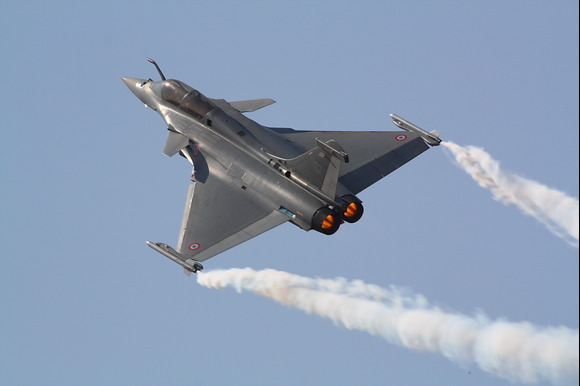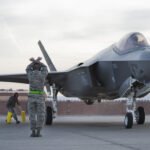French military and intelligence officials have accused China of orchestrating a covert campaign through its embassies to damage the global reputation of French-made Rafale fighter jets, particularly in the aftermath of aerial combat between India and Pakistan this May.
According to a report by the Associated Press (AP) released on Sunday, French officials claim Beijing has deployed diplomatic channels to plant doubts about the Rafale’s performance, aiming to influence countries that have purchased the aircraft or are considering doing so—most notably Indonesia. The AP noted that the information was shared by a French military official who requested anonymity.
The allegations come after four days of intense air clashes between India and Pakistan, marking the most serious military confrontation between the nuclear-armed rivals in years. The skirmishes involved dozens of fighter aircraft from both sides, including India’s deployment of Rafale jets in retaliatory strikes on Pakistani targets.
In the aftermath, military analysts and officials began closely studying the capabilities of both sides’ air combat systems. This included assessments of how Pakistan’s Chinese-made fighter jets and air-to-air missile systems performed against India’s arsenal, particularly the French-manufactured Rafales.
The stakes are high for France, as the sale of Rafale jets and other advanced military hardware is a significant contributor to its defence industry. These deals also serve as key diplomatic tools, strengthening French ties in Asia, a region increasingly influenced by China’s strategic expansion.
Pakistan has claimed its air force downed five Indian aircraft during the conflict, including three Rafales. While India has admitted to aircraft losses, it has not specified numbers. French officials, however, believe only three Indian jets were lost—one Rafale, one Russian-made Sukhoi, and a Mirage 2000, an older French model. This would mark the first confirmed combat loss of a Rafale, which has been sold to eight nations.
General Jerome Bellanger, head of the French air force, acknowledged that the losses had raised concerns among countries that had purchased the fighter jet. “Of course, all those, the nations that bought Rafales, asked themselves questions,” he said.
In response to the controversy, French officials have launched efforts to defend the Rafale’s reputation, accusing Pakistan and its ally China of launching an online campaign to discredit the jet. This alleged effort, they say, has involved the use of viral social media posts, fake images, AI-generated content, and even manipulated footage from video games to simulate damage and combat losses involving Rafales.
French researchers who specialise in digital misinformation reported the emergence of over 1,000 newly created social media accounts that pushed a narrative of Chinese military superiority during the India-Pakistan clashes. These accounts reportedly amplified claims of Rafale underperformance and praised Chinese military technology.
Although French military officials admit they have not found direct evidence linking the online activity to the Chinese government, they argue that Chinese embassy defence attaches have echoed the same discrediting narrative in private meetings with foreign defence and security officials. According to French intelligence sources, these officials actively promoted Chinese-made fighter jets while casting doubt on the Rafale’s combat effectiveness.
The intelligence gathered by France indicates that China’s lobbying was strategically directed at countries that had either signed contracts for Rafales or were considering them, with Indonesia being a primary target. French officials reportedly learned of these diplomatic efforts from the governments that were approached by Chinese representatives.
In a statement posted to its website, France’s Ministry for Armed Forces said the Rafale was subjected to “a vast campaign of disinformation” designed to elevate the appeal of alternative military hardware, particularly Chinese models. “The Rafale was not randomly targeted. It is a highly capable fighter jet, exported abroad and deployed in a high-visibility theatre,” the ministry stated.
When asked by the Associated Press to comment on the French allegations, China’s Ministry of National Defence dismissed the claims as “pure groundless rumours and slander.” The ministry added that “China has consistently maintained a prudent and responsible approach to military exports, playing a constructive role in regional and global peace and stability.”
To date, Dassault Aviation, the French manufacturer of the Rafale, has sold 533 jets globally, with 323 of those going to export clients such as Egypt, India, Qatar, Greece, Croatia, the United Arab Emirates, Serbia, and Indonesia. Indonesia has placed an order for 42 Rafales and is currently considering additional purchases.
As the geopolitical rivalry between France and China intensifies, particularly in defence markets, the fallout from the India-Pakistan conflict appears to have become a flashpoint for wider disinformation and diplomatic tensions.






